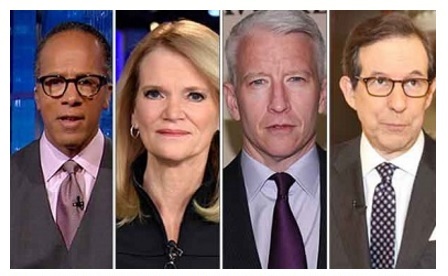Environmental Defense Fund is one of the world’s largest environmental organizations, with more than 1.5 million members and a staff of 500 scientists, economists, policy experts, and other professionals around the world. They strive for prosperity and environmental stewardship to go hand in hand.
In the following article, experts at EDF express their concern about the fact no climate related questions have been asked at all during the recent Presidential debates in the U.S. between Hillary Clinton and Donald Trump.
With two out of three Presidential debates, as well as the Vice Presidential debate, in the rearview mirror, people all over the world are disturbed that the moderators have yet to ask a single climate question.
While at least one question about climate was asked in every election cycle from 1998 to 2008—a year in which all four debates touched on climate policy—2012 was the first election in almost 20 years to ignore climate change completely in all four debates.
American democracy depends on an informed electorate choosing their leaders—but how can voters make good choices when the media neglects to inform them?
Global warming is the most serious environmental threat humanity has ever faced, and it’s already affecting every region of the planet. More than 70 percent of Americans support limiting climate pollution under an international agreement.
You wouldn’t know it from the 2016 election debates thus far, however.

Top news anchors from NBC, CNN, ABC and FOX moderating the debates are not asking any climate change questions. Why? (Photo: EDF)
During the first 20 primary presidential debates, climate change represented less than 1.5 percent of the questions asked. In nine of those debates, the issue was never discussed at all. Election coverage in mainstream media has also all-but-ignored climate change.
NBC’s Lester Holt had at his disposal 101 prepared climate questions when he moderated the first presidential debate on Sept. 26. And yet, he failed to ask a single question about these critical issues. There is one more presidential debate
where moderators can put the candidates on record.
A discussion of the economy is woefully incomplete without acknowledging the trillions Citibank estimates climate impacts will cost, or the dramatic increase in solar energy jobs we’ve seen in recent years.
Climate change is a key element of the United States’ relationship with another superpower: China. Pollution from power plants has a direct bearing on the nation’s healthcare costs.
Migration and refugee issues, another hot issue for voters this year, also have a direct connection to climate impacts.
44% of young voters don’t know how our presidential candidates differ on climate change.
In fact, climate and clean energy policies are integrally linked to all the issues that top voter concerns in 2016. And yet, a recent study found that 44 percent of young voters today don’t know how our presidential candidates differ on climate change.
In a democracy, political power is earned through the informed consent of voters, and it assumes that voters understand what’s at stake.
It’s the job, and obligation, of our political media and debate moderators to inform American voters about the policy proposals that presidential candidates offer on critical challenges such as climate change and clean energy development, up and down the ballot.
During an election year that’s on pace to shatter last year’s record as the hottest year in recorded history, after a string of record-breaking years, there are certainly some good questions debate moderators can ask.
And after four deadly, 1,000-year storms in a five-month period, and as many as eight weather and climate disasters exceeding $1 billion in damages so far, voters could use some answers.
Source: https://www.edf.org/



